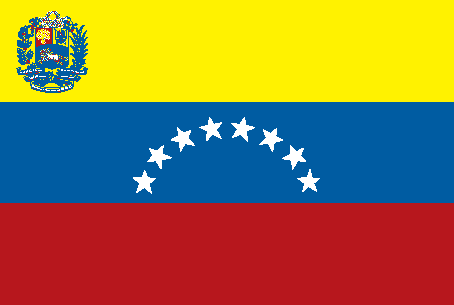
Source: World Bank
Relationships & Communications
. This is a country where networking is important since it broadens your base of personnel who might have a connection you need.
. As with many Latin cultures, Venezuelans are risk averse, which makes it important that they know and trust the people with whom they do business.
. Venezuelans prefer face-to-face meetings to doing business by telephone or in writing, which are seen as too impersonal. It takes time to develop relationships.
. Appearances matter to Venezuelans. Dress well and try to stay in a reputable hotel.
. Senior positions in business are predominately held by the upper class, so it is important that you pay attention to the hierarchy and show appropriate deference and respect to those in positions of authority.
Business Meeting Etiquette
. Business appointments are required and can often be scheduled on short notice; however, it is best to make them about 2 weeks in advance by telephone, email or fax.
. Confirm meetings by fax or email, in Spanish, at least one week before the meeting. It is best to schedule appointments in the morning.
. Avoid scheduling meetings on Friday afternoon, as many Venezuelans leave early for the weekend.
. It is often difficult to schedule meetings in the two weeks before and after Christmas and Carnival, and three weeks before and after Easter.
. Venezuelans are generally punctual for business meetings, especially if they are accustomed to working with international companies.
. The first meeting is formal.
. Have all written material available in both English and Spanish.
. Decisions are not reached at meetings. Meetings are for discussion and to exchange ideas.
. Send a thank you note to the most senior executive after the meeting.
Business Negotiation
. Expect a minimal amount of small talk before getting down to business. Older Venezuelans prefer to get to know people before doing business with them while younger businesspeople are more concerned with business than the social relationship.
. It will take several meetings to come to an agreement. Negotiation and time for consultation are important.
. Relationships are viewed as more important than business documents.
. Negotiations and decisions take a long time.
. Venezuelans focus on long- term rather than short-term goals.
. Venezuelan business is hierarchical. Decisions are made by the person with the most authority.
Dress Etiquette
. Appropriate business attire is expected.
. Men should wear good quality, conservative, dark coloured business suits.
. Women should wear stylish suits or dresses. They should be elegantly dressed, including make-up, jewellery and manicures.
Business Cards
. Business cards are exchanged during introductions with everyone at a meeting.
. Have one side of your business card translated into Spanish.
. Present your business card with the Spanish side facing the recipient.
. Business cards should contain both your professional and educational qualifications, since Venezuelans are status conscious.
. Writing on someone's business card in front of them is considered very rude.
Fixed business hours may exist theoretically in Venezuela, but, in practice, opening and closing hours are relatively fluid. The working day is supposedly eight hours, from 8am to noon and 2pm to 6pm, Monday to Friday, but many businesses work shorter hours. Almost all offices, including tourist offices, are closed on Saturday and Sunday.
Usual shopping hours are 9am to 6pm or 7pm weekdays, and a half-day on Saturday (9am to 1pm). Many shops close for lunch but some work without a lunchtime break. Restaurants normally open from around noon to 9pm or 11pm, but many are closed on Sunday.
Most museums are open on Sunday but closed on Monday.